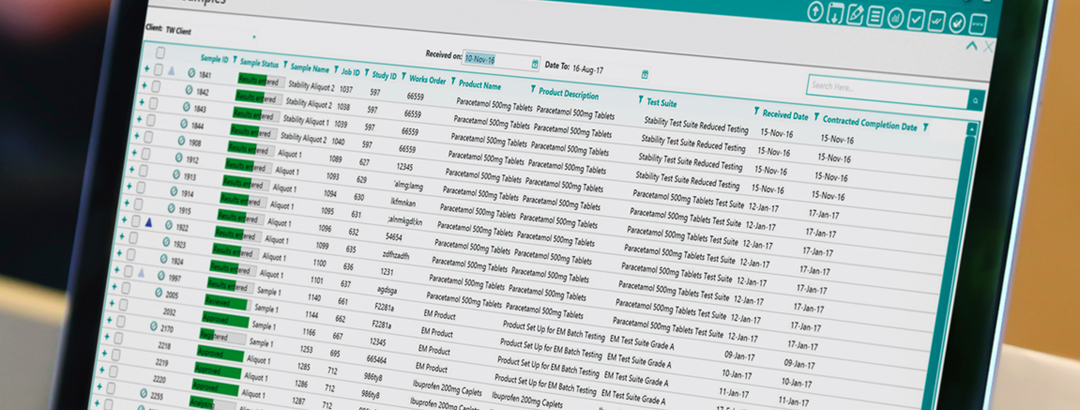The pharmaceutical industry is highly regulated to ensure that the quality, efficacy and safety of medicines delivered to patients is maintained. When pharma companies
LabHQ's Best Features for Pharma
by Sophie Blackburn posted in LIMS, Data Management, Process Improvement, best practices, process mapping, deployment projects, Laboratory Efficiency, Laboratory Management, TipsWhat to Do When Your LIMS is No Longer Supported
by Theresa Webster posted in LIMS, Data Management, Process Improvement, best practices, process mapping, deployment projects, Laboratory Efficiency, Laboratory Management, TipsAs a laboratory that has already made the leap from paper to LIMS, moving away from LIMS would be a step backwards, and certainly wouldn’t be the favourable option if your LIMS is no longer supported. What do you do when your LIMS supplier has discontinued service? In this blog, we go through the key areas to consider, so you don’t have to roll back to paper-based systems.
Back to the Future - Introducing Modern Practices with LIMS for Your Lab
by Theresa Webster posted in LIMS, best practices, Laboratory Efficiency, Laboratory Management, TipsHave you ever stepped into a lab, and it looks like it was lost in time? No computers. Data recorded in paper notebooks. Equipment over twenty years old. If this sounds like your lab, and you’re ready to bring it back to the future, here are a few modern practices that LIMS can help you upgrade to.
Does Equipment Integration Really Save You Time?
by Theresa Webster posted in LIMS, Data Management, best practices, Laboratory Management, TipsA lot of laboratories that look to implement LIMS often enquire about equipment and third-party software integration. With an aim to go completely paperless, it is beneficial
Communication Critical - Where LIMS Helps on Information Delivery
by Theresa Webster posted in LIMS, Data Management, best practices, Laboratory Management, TipsCommunication is a key part of working as a team, delivering on business objectives, and meeting customer expectations. When you’re working in a laboratory, there are many opportunities to communicate effectively to avoid disappointment.
Are Paper and Excel Limiting Your Laboratory Capabilities?
by Sophie Blackburn posted in LIMS, Data Management, Data Integrity, best practices, Quality, Laboratory Management, TipsIt’s a question I ask daily; how are you currently managing your QC data?
Problem solving and implementing change is never easy.
by Paul Moran posted in Data Management, Data Integrity, Project Management, Process Improvement, best practicesFirst let’s address implementing change. This could be considered a lifelong study. I’ll cover this succinctly before moving onto problem solving and the root cause analysis pocket guide providing a simple technique for both. If we get the problem solving bit right then implementing change becomes a whole lot easier.
A Guide To Best Practices: Meeting Client Expectations
by Theresa Webster posted in LIMS, Client Expectations, client, best practices, LabHQMost businesses seek to nurture their relationships with clients, but successful businesses enchant their customers. They go above and beyond by creating a magical experience that earns repeat business and referrals. The magic flows when a company creates a good product and provides great service, supporting the client as their business grows. A dynamic company like Broughton Software seeks to meet their clients’ expectations through responsiveness, empathy, anticipation of needs, and honesty. Other practices include accountability, insight, and consistency.












